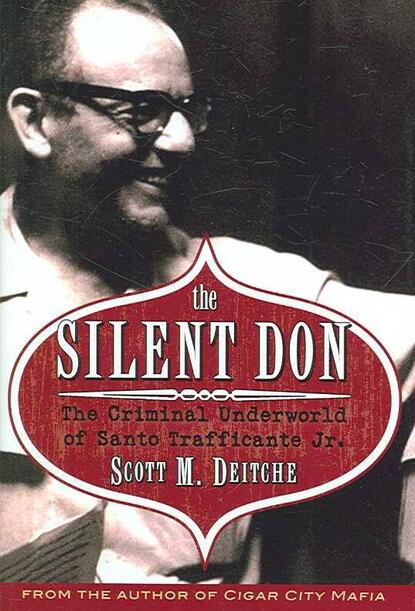THE HIT THAT EXPOSED SOME OF TAMPA’S ELITE
The Election
Jimmy Velasco was out of the racket. He happily resided in California with his wife and daughter. Velasco had moved there at the behest of his wife, who feared for his safety in Tampa, where he had been involved in the city’s underworld since at least the 1930s. According to friends and family, Velasco was contemplating using the money he made in Tampa’s illegal industries to buy a restaurant in California so he could live his remaining years free of numbers running, guns, and the fear of having power snatched away with one well-placed bullet. But as Michael Corleone once said, “Just when I thought I was out…they pull me back in!”
According to a post-murder notarized statement dated February 28, 1949, and written by Velasco’s brothers, John, Roy, and Arthur, it was January 1947 when Jimmy Velasco received a phone call from his “old friends” in Tampa. These friends made up “The Syndicate” that the Velasco brothers stated controlled all gambling in Tampa, Sheriff Hugh Culbreath, State Attorney J. Rex Farrior, Tampa Chief of Police J.L. Eddings, and now known gangsters Jimmy and Sammy Lumia, Salvatore “Red” Italiano, Tony, Tom and Frank Diecidue, Gus Friscia, Primo Lazzara, and Santo Trafficante, Jr. The partnership between law enforcement and gangsters was simple. In return for a share of the riches, the sheriff and police chief agreed to turn a blind eye to the gangsters’ illegal operations and to help put competing gangsters out of business by shutting down their games and arresting them.
However, the 1947 elections threatened this power structure. Six of the seven seats on the Tampa City Council were up for grabs. The only way law enforcement could get away with its corrupt activities was if the local government, also for a share of the riches, pretended they were ignorant of The Syndicate’s ways. If the wrong men were elected, aka honest men, The Syndicate could have been ruined.
“I remember that election,” said Leland Hawes, a former Tampa Tribune crime reporter and historian. “I was still in college at the time, but I remember that election because it was supposed to be the one that cleaned up the city.”
Hawes explained that six city council seats were up for grabs, and the incumbents were known for “talking with the wrong people.” The Tampa Tribune, he said, backed the six challengers, believing the new blood could clean up City Hall.

Perhaps someone else backed these new candidates as well.
According to the Velasco brothers’ statement, The Syndicate called Velasco in January of 1947 because they needed a favor; they needed him to return to Tampa and help them control the elections. In his book The Silent Don, Scott Deitche wrote that Velasco was “an astute observer of the election system and his method of ensuring votes for candidates favored by the Mob was foolproof.”
“He did this in many ways,” said Deitche when asked to further explain the statements in his book. For instance, he would give money to candidates for their campaign with a wink-wink that this money came with a promise that they would scratch his back in return for him scratching theirs. Maybe he would use it to privately hire people to stump throughout the city for the candidates he supported.
Or perhaps he would buy votes.” “He could give a few dollars to homeless people, struggling families, or anyone looking to make easy money in exchange for votes,” explained Deitche. “When Velasco promised a candidate X amount of votes, they knew he would bring them that exact number of votes.”
Velasco’s brothers stated that The Syndicate’s phone call was convincing. As a result, Velasco agreed to return to Tampa and spend $29,000 on the election. Although Hawes claimed the 1947 election was supposed to clean up the city, considering that The Syndicate was happy with the outcome that saw the six challengers win the council seats, the opposite occurred.
According to the Velasco brothers’ notarized statement, their brother spent the $29,000 with the understanding that two-thirds of it would be repaid. The remaining difference possibly bought him impunity from law enforcement.
